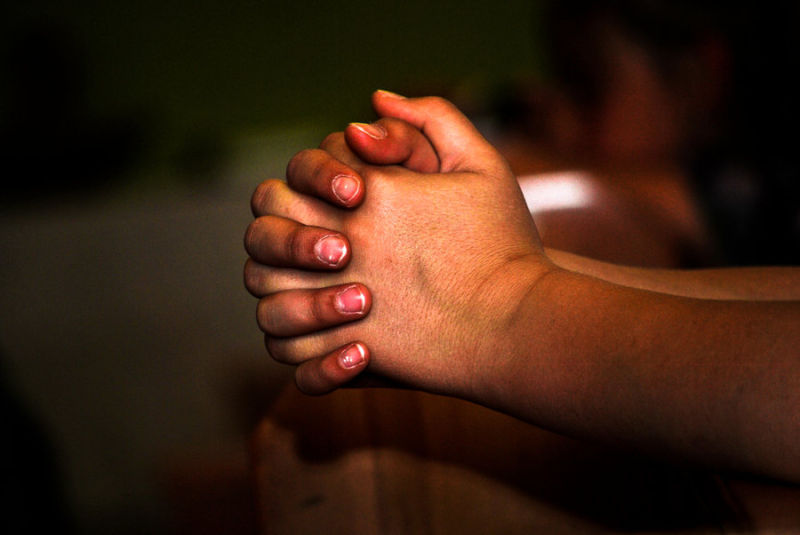Liu: Bring interfaith rooms to campus
Prayer
March 31, 2014
“Do you have the keys to the library?” Two girls wearing the hijab, a veil commonly worn by Muslim women, asked me while I was manning the a campus computer lab. I did not, so I looked for someone who did, but no one seemed to be around.
“Why do you need to get into the library?” I asked. It is a small room in our building, full of books, and usually only used by staff members.
“We need to pray,” one of the girls answered. They, like all Muslims, have to do a required ritual prayer, or salat, during the afternoon. The library they usually used for praying was locked, so I allowed them to use an empty classroom at the back of the lab.
As I watch them go, I thought: is this really the only way?
Even though we are a school with no religious affiliation, the normalized religion on campus, from the Browsing Library Chapel to the various student organizations on campus, is Christianity. According to a survey done by the City University of New York, about 52 percent of Iowans are Protestants and 23 percent are Roman Catholics, while other religions make up only 6 percent of the population — even behind the nonreligious population of 13 percent. Therefore, it is not surprising that religions other than Christianity tend to take a back seat.
This incident helped me see a different side of Iowa State. The two girls, among other less prevalent religions on campus, are part of an unvoiced minority that has had to resort to praying in any available space they can find. They know the futility of challenging the unspoken hierarchy by asking for any accommodations and simply practice their faiths as quietly as possible.
Khaloud Al’Abri, is an international student from Oman who just recently came to the United States. Being of the Islamic faith, she — like a number of students on campus — often finds it difficult to pray on campus.
“It is a big problem for us,” Al’Abri said. “We all need to pray at about the same time, but there is a lack of clean, private rooms to do so on campus.”
Al’Abri said she would use the Gold Room in the Memorial Union or the Intensive English and Orientation Program library, where space and availability are continually subject to change.
Perhaps it is time that the school invests in a quiet, private space dedicated to the spirituality and well-being of all students — a room not for all faiths, including Christianity, Islam, Buddhism, Hinduism, atheism or agnosticism; a room where students can go to relax, meditate or pray.
Quite a few examples of interfaith prayer/meditation rooms are found in institutions across the country. Surprisingly, many of them exist within Catholic schools. Marygrove College, a private Catholic school in Detroit, have recently opened an interfaith prayer room for Muslims and other religions. The establishment of such a room is not as far-fetched as it might seem.
The first thing that most people said to me when I asked for their opinion on prayer rooms is, “Is there not a room like that already? How about the Browsing Library Chapel/Multicultural Center/rooms in the MU?” The problem with these spaces is that they are often occupied. Plus, most of them are not private enough for the practice of something as personal as prayer.
Nancy Lan, who has been a Christian for 8 years, liked the idea of an interfaith prayer room. “I do not see any problem with it, but I do not know if other, more conservative Christians would feel the same about using an interfaith room.”
To get a Buddhist’s perspective, I talked with Sophia Hui, assistant professor of marketing and adviser to the Dizang-Qi Buddhism Club.
“It is a good idea,” Hui said. “We had a lot of interfaith activities back when I taught at Indiana University. In Buddhism, we also do a form of praying called prostrations, so we can definitely use a room like that.”
Jeffrey St Clair, president of the Atheist and Agnostic Society, likes the idea but admits that he and his club members would not actively support it since most of them will not need to use the room. “However,” he said, “some agnostics who practice Buddhism or meditation might benefit from it.”
Regardless of religion or beliefs, the people I talked to all agreed on one thing: the establishment of an interfaith room would be beneficial to all students on campus, religious or not.
I love Iowa State for its diversity. As a school, we embrace our differences, as seen in our vast array of student organizations. However, when it comes to religion, there is a big elephant in the room. In our school, students can freely practice their own faiths — but is it really freedom when there is no space made available for them to do so? Since the mission of our school is to promote and support the diversity of the student body, the availability of an interfaith room would be the first step to cultivating an interfaith dialogue and to maintain the vibrant cultures of our school.
The Religious Leader’s Association is having a meeting at 1:15 p.m. April 2 at the Memorial Union to discuss the possibility of an interfaith prayer room on campus. Please contact Shari Reilly at [email protected] if you are interested in attending.

















